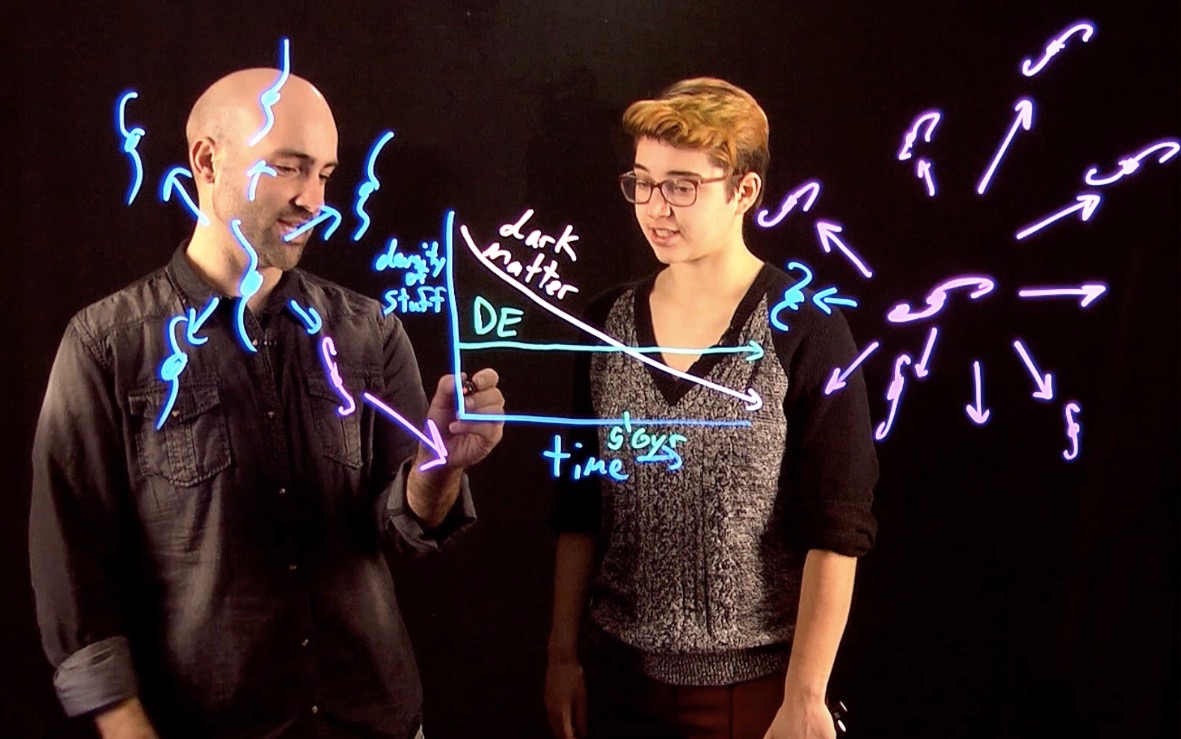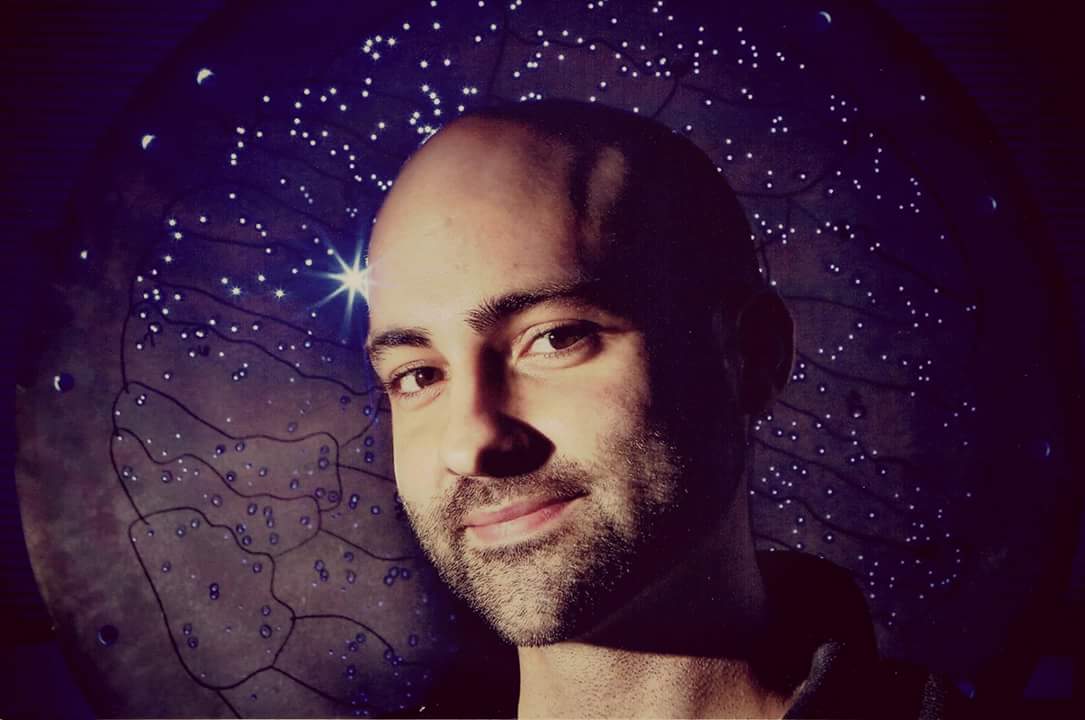'We Don’t Planet' Episode 2: What’s Up with Dark Energy?

We’ve known that the universe is expanding ever since the work of Edwin Hubble in the early 20th century, but it was only in 1998 that we realized that the expansion of the universe is accelerating. By comparing the true luminosity to the observed brightness of distant supernovae, astronomers discovered the accelerated expansion, known as dark energy.
We’re still not exactly sure what dark energy is, but it can be understood as a property of the vacuum of space-time itself. Its density remains constant; the more empty space you have, the more dark energy you have. This unique property can accelerate expansion on cosmic scales.
However, this wasn’t always the case. Today dark energy accounts for about 70 percent of the total amount of mass and energy in the universe, with matter (especially dark matter) making up the remainder. But billions of years ago, the universe was much smaller. With a smaller volume, there was less total dark energy, and all the matter was squeezed into a tighter volume, increasing its density.
Until about 5 billion years ago, the expansion of the universe was actually decelerating as it was dominated by the gravitational attraction of matter. But in the background, dark energy remained constant; once the matter diluted itself over too much volume, the era of accelerated expansion began.
This acceleration persists to today and — unless some new understanding radically changes our picture of dark energy — will persist perpetually into the future.
"We Don’t Planet" is hosted by Ohio State University astrophysicist and COSI chief scientist Paul Sutterwith undergraduate student Anna Voelker. Produced by Doug Dangler, ASC Technology Services. Supported by The Ohio State University Department of Astronomy and Center for Cosmology and AstroParticle Physics. You can follow Paul on Twitter and Facebook.
Get the Space.com Newsletter
Breaking space news, the latest updates on rocket launches, skywatching events and more!
Join our Space Forums to keep talking space on the latest missions, night sky and more! And if you have a news tip, correction or comment, let us know at: community@space.com.

Paul M. Sutter is a cosmologist at Johns Hopkins University, host of Ask a Spaceman, and author of How to Die in Space.
